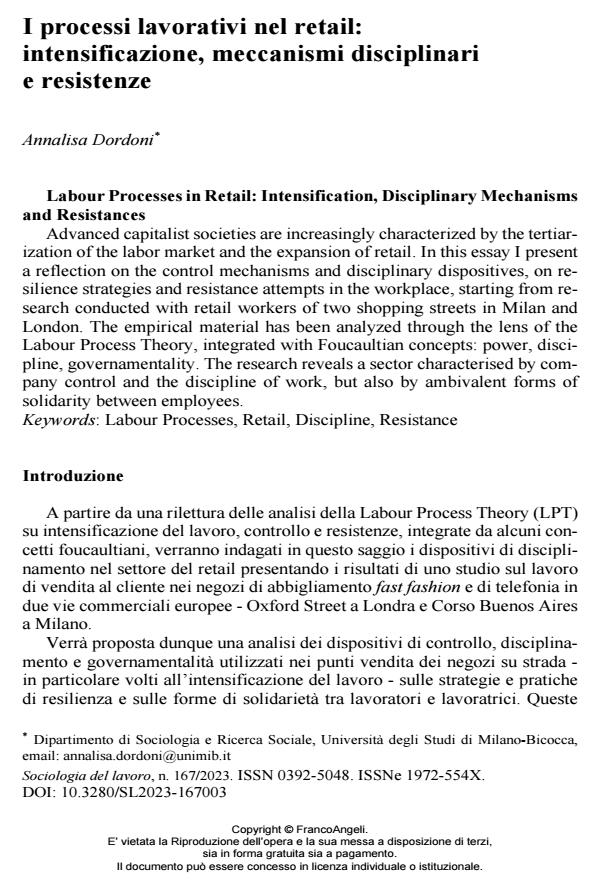Labour Processes in Retail: Intensification, Disciplinary Mechanisms and Resistances
Journal title SOCIOLOGIA DEL LAVORO
Author/s Annalisa Dordoni
Publishing Year 2024 Issue 2023/167
Language Italian Pages 20 P. 56-75 File size 233 KB
DOI 10.3280/SL2023-167003
DOI is like a bar code for intellectual property: to have more infomation
click here
Below, you can see the article first page
If you want to buy this article in PDF format, you can do it, following the instructions to buy download credits

FrancoAngeli is member of Publishers International Linking Association, Inc (PILA), a not-for-profit association which run the CrossRef service enabling links to and from online scholarly content.
Advanced capitalist societies are increasingly characterized by the tertiarization of the labor market and the expansion of retail. In this es-say I present a reflection on the control mechanisms and disciplinary dispositives, on resilience strategies and resistance attempts in the workplace, starting from research conducted with retail workers of two shopping streets in Milan and London. The empirical material has been analyzed through the lens of the Labour Process Theory, integrated with Foucaultian concepts: power, discipline, governamentality. The research reveals a sector characterised by company control and the discipline of work, but also by ambivalent forms of solidarity between employees.
Keywords: Labour Processes, Retail, Discipline, Resistance
Annalisa Dordoni, I processi lavorativi nel retail: intensificazione, meccanismi disciplinari e resistenze in "SOCIOLOGIA DEL LAVORO " 167/2023, pp 56-75, DOI: 10.3280/SL2023-167003